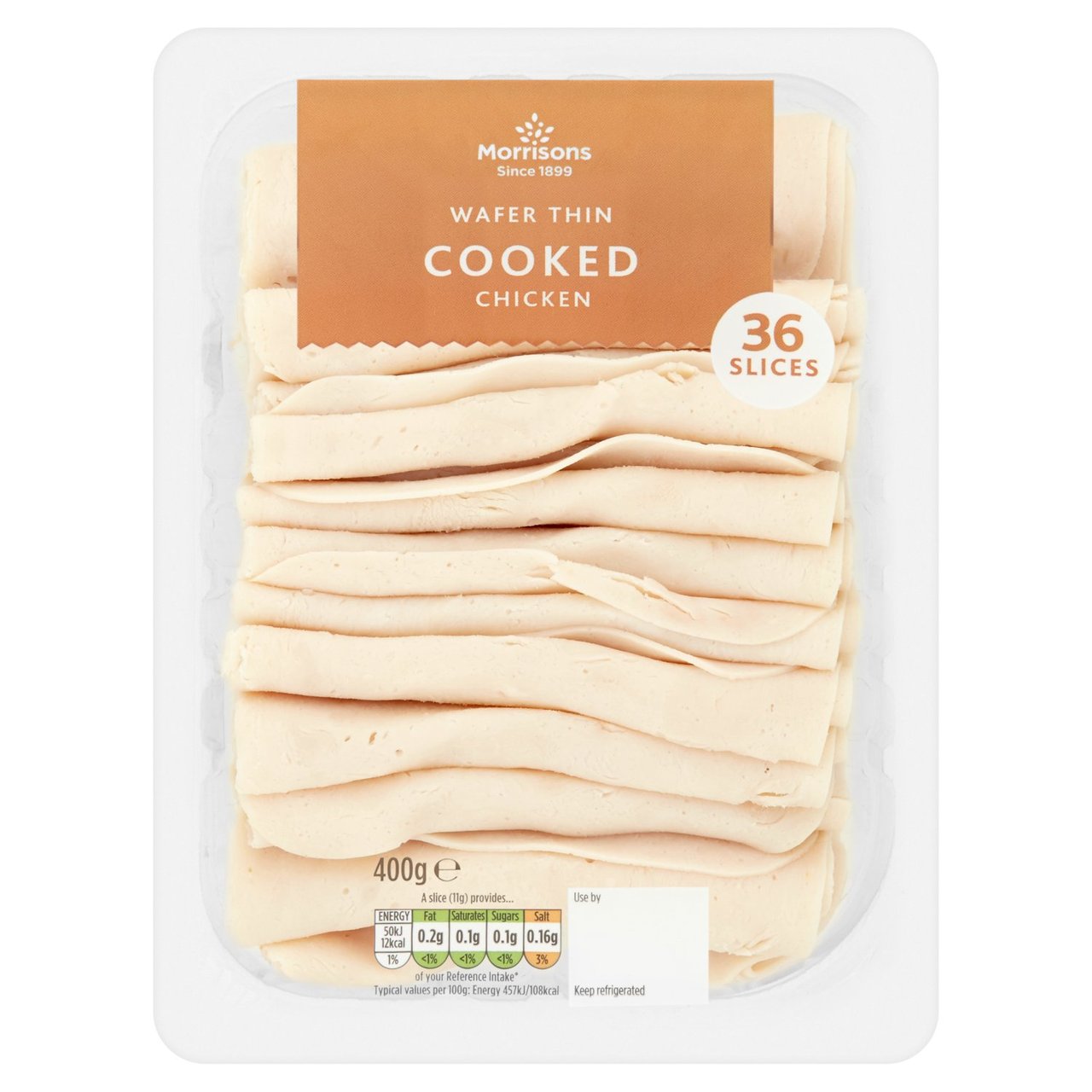The Food Standards Agency has issued a food alert for the packed lunch staple, warning people not to consume it because it may be dangerous.
It is recalling the 400g and 170g packs of cooked chicken with a use-by date of June 16.
Point-of-sale notices will be placed in all retail locations selling these products, which usually retail for around £1.75.
The warnings explain why the products are being recalled and what people should do if they purchased them.
The warning on the Agency’s website read: “This product [wafer thin cooked chicken] may contain pieces of metal which makes them unsafe to eat.
“If you have bought the above product do not eat it.
“Instead, return it to the store from where it was bought for a full refund.”
It comes after more Magnum ice creams were urgently recalled by Unilever over fears they contain small pieces of metal and plastic.
Customers are being urged to return Magnum Almond Ice Cream Sticks the UK and Ireland because they are “unsafe to eat”.
The Food Standards Agency urged people who bought the three-pack ice creams, which sell for around £3.25 at most supermarkets, not to eat them.
It comes three weeks after Unilever had to recall Magnum Classic Ice Cream Sticks because of the possible presence of pieces of metal.
An FSA spokesperson said: “Unilever is recalling Magnum Almond Ice Cream Sticks, (3x100ml), because of the possible presence of plastic and metal.
“The possible presence of plastic and metal makes the product unsafe to eat.
“If you have bought the above product do not eat it.
“Instead, any customers with queries or concerns can contact the careline team for further guidance on 0800146252 or email [email protected].”
All products with batch codes L3338, L3339, L3340, L3341, L3342 and best before dates of 12/205 are being recalled.
You can check your ice cream’s best before date and batch code on the side of the box.
Unilever said: “The safety of the people that buy and use our products is always our number one priority which is why we are recalling these products.
“No other Magnum products are affected.
“We apologise for any inconvenience caused and thank you for your cooperation.”
What to do if someone is choking
Mild choking
If the airway is only partly blocked, the person will usually be able to speak, cry, cough or breathe, and may be able to clear the blockage themselves.
In adults:
- Encourage them to keep coughing
- Ask them to try to spit out the object
- Don’t put your fingers in their mouth
- If coughing doesn’t work, start back blows
In children:
- If you can see the object, try to remove it (but don’t poke blindly)
- Encouraging coughing
- Shout for help if coughing isn’t effective or the child is silent
- Use back blows if the child is still conscious but not coughing
Severe choking
In adults:
Where choking is severe, the person won’t be able to speak, cry, cough or breathe.
Without help, they’ll eventually become unconscious, so you should carry out back blows.
In children:
Back blows can be carried out on children under one year.
If this doesn’t work, chest thrusts can be started on kids up to 12 months old, and abdominal thrusts on those over one year.
Call 999 if the blockage doesn’t come out after trying back blows and either chest or abdominal thrusts.
Keep trying this cycle until help arrives.
Even if the object has come out, get medical help. Part of the object might have been left behind, or the patient might have been hurt by the procedure.
Source: NHS

